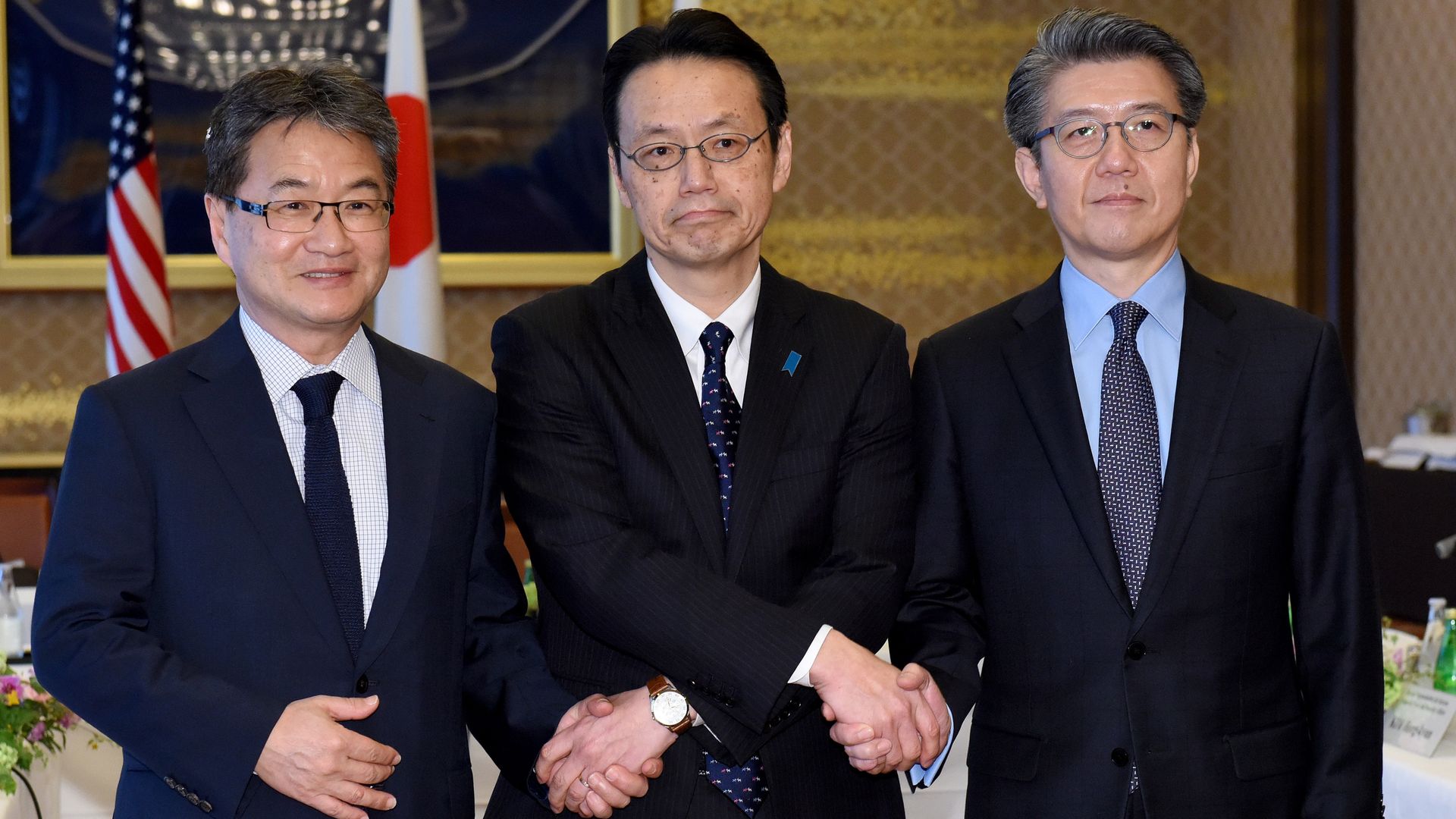Updated Feb 27, 2018 - World
Expert VoicesTrump's North Korea strategy faces growing diplomatic deficits
Add Axios as your preferred source to
see more of our stories on Google.

Joseph Yun (L) with South Korean and Japanese diplomatic counterparts. Photo: Toru Yamanaka / AFP / Pool / Anadolu Agency / Getty Images
